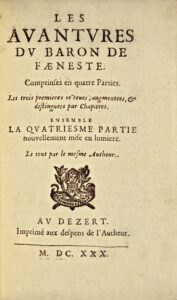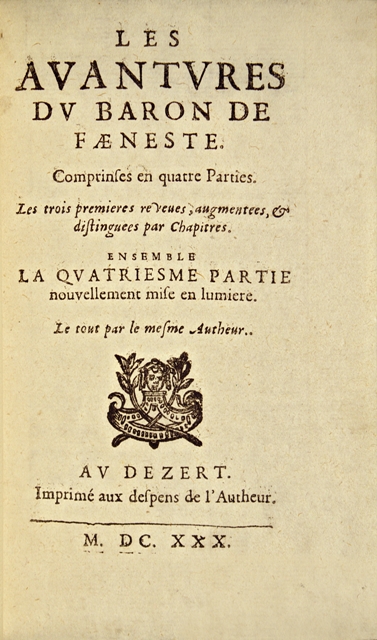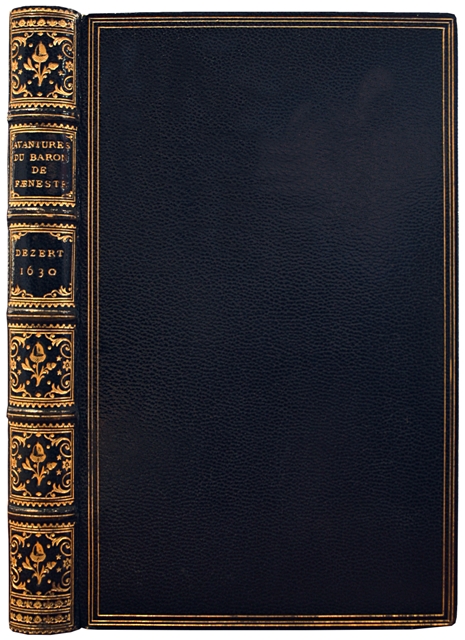Au Dezert, Imprimé aux despens de l’Autheur, 1630.
8vo [170 x 104 mm] of (6) ll. including the title and 308 pp. Bound in full dark blue morocco, triple gilt fillet on the covers, spine ribbed and richly decorated with gilt acorns, inner gilt border, gilt edges. Binding from the 19th century signed F. Bedford.
Second issue of the collective first edition, the first enclosing the four parts, the fourth one being published here for the first time. Tchemerzine, I, p. 175.
“Sole complete edition of these dialogues published when the author was alive”. (Brunet, I, 545).
“This second issue of the first collective edition is considered by M. de Backer as a counterfeit. Pp. 306,307 and 308 are indeed numbered, the title fleuron is different, the great capitals at the top of the books are smaller, and many misprints have been corrected.” (Tchemerzine).
This edition presents the following particularity: the typographic distinction between u and v is observed in the text, whereas it isn’t in the title. The address “Au Dezert” would be the one of Pierre Aubert in Geneva. The publication of this volume had its printer fined and sentenced to prison after an arrest of April 1630 by the Geneva’s Small Council, with order to destroy the entire edition.
This satirical novel is composed, for the most part, of dialogues between the baron de Faeneste, a vain and boastful soldier, and the lord of Enay, a good, simple and honest man, “Faeneste” in Greek means Appearance whereas “Enay” means Being. The soldier speaks in French mixed with Gascon dialect, whereas the lord speaks in noble and chosen terms. “The baron comes back from war and meets Enay, humbly dressed. The pretentious soldier praises the war life, but Enay discusses his theories to show him with solid arguments, and with much finesse, the despair of a life lived from day to day with, for only goal, the immediate success. Dialogue after dialogue, the author tells Faeneste’s adventures: his arrival at Court, his loves and his duels, his surprising exploits ending up in smoke. Finally the pain inflicted to the people by the man-at-arms is condemned, as well as the ambition to dominate by force, even by denying any justice. The satire against Catholicism at the occasion of the baron’s stay in Italy, and particularly in Rome, has an important place in the work. Discussions about baptism, priests, miracles and Limbo, reveal the polemic intentions of the author, famous and severe Huguenot for the memory of Henry IV, “apostate” by politics. The work ends on the ironic praise of impiety.”
The greatest interest of the work lies in the vivacity of the description and in the very sharp portrait of France at the beginning of the 17th century.
Precious wide-margined copy in second state, finely bound in dark blue morocco.



